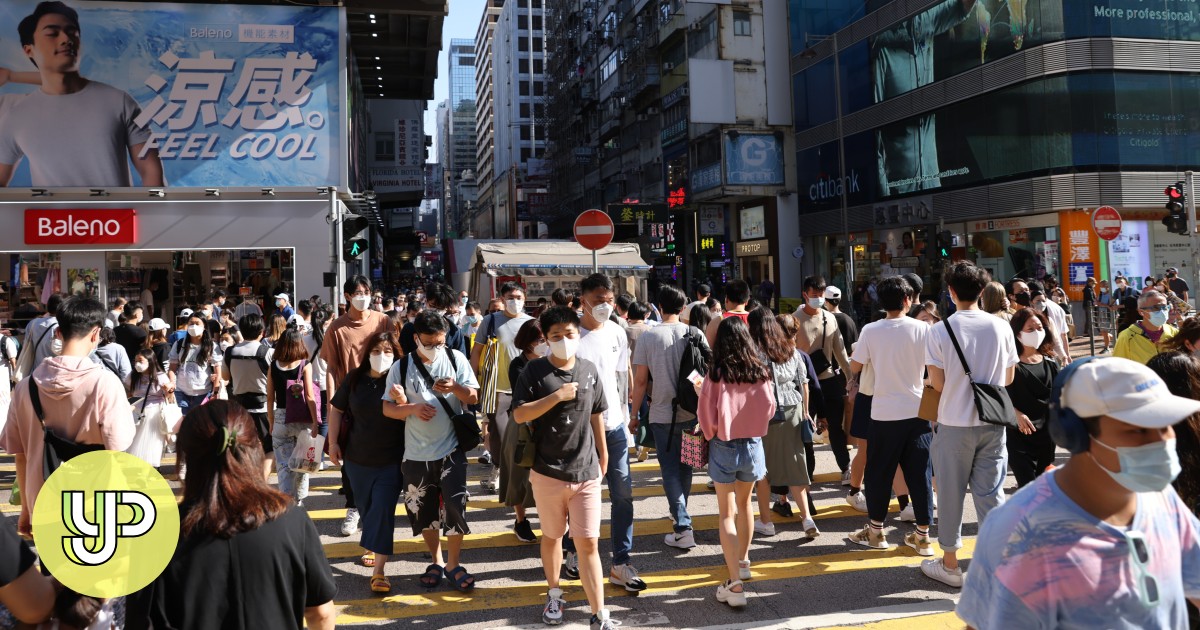
Coronavirus: covid-19 now endemic in hong kong, health adviser says
- Select a language for the TTS:
- UK English Female
- UK English Male
- US English Female
- US English Male
- Australian Female
- Australian Male
- Language selected: (auto detect) - EN
Play all audios:

A leading government health adviser says that Covid-19 has become endemic in Hong Kong, raising the possibility of reviewing the city’s pandemic control strategy. Professor David Hui
Shu-cheong from Chinese University noted that daily caseloads had continued to gradually decline even after the the first round of social-distancing relaxations took place on April 21. “I
believe that it has become endemic, as we can see that the daily caseload is still dropping slowly after [infection numbers] reduced to three digits,” he told a radio programme on Wednesday.
HONG KONG TO RELAX MORE SOCIAL DISTANCING MEASURES But he struck a cautious note on a potentially small rebound in cases that could be sparked by the resumption of in-person classes at
kindergartens and secondary schools on Tuesday. Hui said it was difficult to eradicate the disease following a large outbreak, as there could be silent transmission chains from asymptomatic
patients, while antibody levels in vaccinated residents would also fade over time. “Even for other places, such as Singapore, which has a higher vaccination rate than us, they still cannot
reach zero cases. It has become endemic,” he said. “The disease will continue to exist in the community.” He said Covid-19 was expected to pose less of a threat locally as more residents got
vaccinated or gained natural immunity from infection. Asked if Hong Kong’s overall pandemic strategy should be adjusted, Hui said it depended on Beijing’s approach, as the city had to align
with the mainland Chinese model. “We need to know whether reaching zero cases [in Hong Kong] is a must, or whether achieving ‘social zero Covid’ in the community is already fine,” Hui said.
STUDY ESTIMATES THAT 3 IN 4 KIDS IN THE US HAVE HAD CORONAVIRUS He added that the mainland had been changing strategies constantly, and he believed Hong Kong would adjust accordingly. A new
objective for pandemic control, known as “social zero Covid”, has emerged across the border recently amid outbreaks in Shanghai and Jilin. According to health authorities there, this means
cutting off all transmission chains at the community level, with new infections and asymptomatic patients identified only at isolation facilities. David Hui Shu-cheong, Professor of
Respiratory Medicine at Chinese University, believes the city can begin to rethink its coronavirus strategy now that a majority of Hong Kong has had the vaccine or Covid-19. Photo: Winson
Wong Hong Kong at the moment has adopted the “dynamic zero” Covid-19 strategy, an approach advocated by the mainland since August last year in its fight against the Delta variant. This
encompasses a slew of measures, such as mass testing, stringent border controls, extensive contact tracing and snap lockdowns, aimed at swiftly stamping out new outbreaks when they occur.
Hui said whether the city still needed to conduct mass testing would depend on the decision of mainland health authorities when both sides discuss details of border reopening. WHAT TO DO IF
YOU’RE BATTLING LONG COVID Hong Kong has announced the easing of some social-distancing curbs ahead of schedule starting on Thursday, including allowing eight diners per table at
restaurants, up from the current four, with the city’s leader pointing to an improved coronavirus situation. Residents will also be allowed to take off their masks when running or at country
parks and outdoor sports venues such as basketball and tennis courts, while private swimming pools, beaches and water playgrounds will be reopened. While Chief Executive Carrie Lam Cheng
Yuet-ngor said on Tuesday morning that swimming pools will be reopened on Thursday, the Leisure and Cultural Services Department indicated in the evening that the 38 public pools could only
start operations between May 12 and 16 due to disinfection works. Hui agreed it was the right time to relax social-distancing measures, but said further easing should be done gradually to
prevent any quick rebound in infections.
